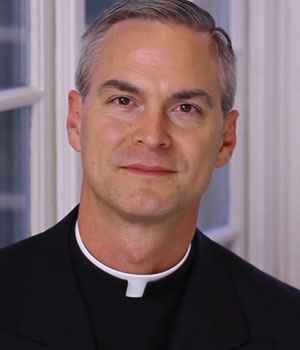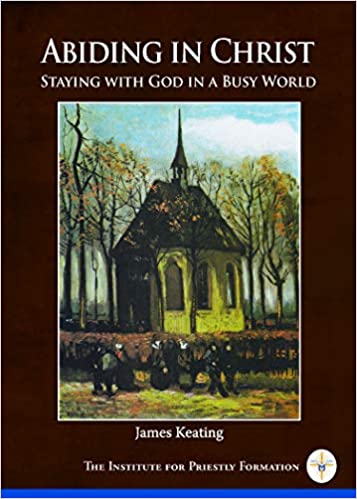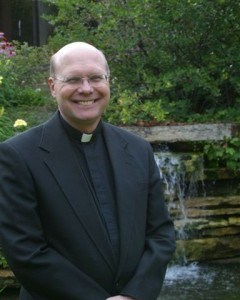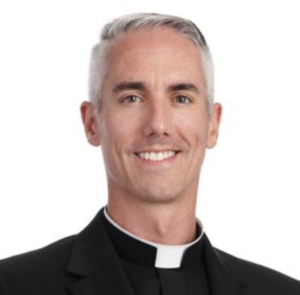Podcast: Play in new window | Download (Duration: 28:59 — 20.0MB) | Embed
Subscribe: Apple Podcasts | Spotify | Amazon Music | Android | Pandora | iHeartRadio | JioSaavn | Podchaser | Gaana | Podcast Index | Email | TuneIn | Deezer | Anghami | RSS | More

Asceticism: Recovery of a Neglected Value – St. John of the Cross: Master of Contemplation with Fr. Donald Haggerty
Fr. Haggerty and Kris McGregor discuss the concept of asceticism in Christian spiritual life. Asceticism as a tradition rooted in the Desert Fathers and essential for tempering bodily indulgence to deepen one’s relationship with God. While often misunderstood as synonymous with penance, asceticism encompasses renunciations and disciplines that help individuals master their will and align their desires with God’s. The spiritual necessity of saying “no” to self-indulgence is a means of freeing the soul to say “yes” to God, fostering both interior freedom and deeper charity. Drawing insights from St. John of the Cross, he highlights the importance of mortification and detachment to clear the soul for divine union, a key principle explored in The Ascent of Mount Carmel.
The modern challenges to asceticism include the culture’s promotion of materialism and pleasure-seeking. Contrasting this with traditional religious practices, such as rigorous fasting and renunciation, with the current minimalistic approach; cautioning against the loss of spiritual discipline. Aceticism benefits all states of life, whether through fasting, simplifying family life, or engaging in acts of love for others. By placing God above created comforts, asceticism becomes a profound way to train the will, deepen faith, and live generously, echoing the Gospel’s call to store treasures in heaven. This spiritual focus invites believers to evaluate their motivations, detach from worldly attachments, and embrace a life centered on God.
Discerning Hearts Reflection Questions
- Understanding Asceticism: How can you integrate ascetic practices into your daily life to foster spiritual discipline and a closer relationship with God?
- Detachment from Comforts: In what ways might materialism or indulgence be hindering your spiritual growth, and how can you simplify your life to prioritize God?
- Mastering the Will: What small daily choices can you make to strengthen your ability to say “no” to self-indulgence and “yes” to God’s will?
- Sacrificial Love: How does practicing self-denial in your relationships, such as within your family or community, reflect the love and generosity of Christ?
- Spiritual Motivation: When engaging in acts of discipline, are your motivations rooted in a desire to please God, or are they influenced by self-focused goals?
- Teaching Children Detachment: How can you model and teach a spirit of detachment and generosity to your children or those in your care?
- Aligning Desires with God: What steps can you take to examine and purify your desires so they align more fully with God’s purpose for your life?
- Asceticism in Action: How can physical sacrifices, such as fasting or service, be offered as acts of love for God and others?
- Prioritizing Spiritual Treasures: How can you focus your heart on storing treasures in heaven rather than becoming overly attached to earthly possessions?
- Learning from the Saints: What lessons from the ascetical practices of the Desert Fathers or St. John of the Cross resonate with your spiritual journey today?
An excerpt from St. John of the Cross: Master of Contemplation
“In this chapter we take up a subject planted more firmly on the ground, namely, Saint John of the Cross’ instructions in book 1 of The Ascent of Mount Carmel on asceticism and self-denial. This teaching will make better sense now after we have seen his understanding of the great role of purification in the human faculties for the sake of union with God. Unfortunately, asceticism is a largely forgotten word in contemporary spirituality, despite its importance in the Catholic tradition. In truth, it has never been a treasured topic or a popular Catholic pursuit. It has always been subject to exaggerated notions that distort it and empty it of value. Today another reason may exist for its virtual disappearance from spiritual teaching, which is the excessive focus on the inward path of silent meditative practices that has lately preoccupied spirituality. Writings on the quest for God through methods of meditative mindfulness typically ignore self-denial or bodily discipline as a prerequisite for spiritual growth. This is not to say that these writings encourage moral laxity, but simply that a need for some commitment to asceticism and to real practices of self-denial is nowhere to be found in them. Frankly, this is not a good sign of their value as a teaching for souls seeking a closer relationship with God. The neglect of an ascetical element in the pursuit of God leaves unaddressed the retention of indulgent tendencies in a life. The effort of seeking God ends up then often as a self-absorbed quest, instead of a pure and sacrificial pursuit in response to Jesus’ own words in the Gospel and in imitation of saintly lives.”
Haggerty, Donald. Saint John of the Cross: Master of Contemplation (p. 101). Ignatius Press. Kindle Edition.










 “A fresh and attractive reconsideration of this centuries-old devotion in the Catholic Church. Blessed Basile Moreau (1873), the founder of the Congregation of Holy Cross, who entrusted his priests to the Sacred Heart of Jesus, wrote: ‘The primary purpose of the devotion to the Sacred Heart is to return love for love.’ Fr. Kubicki develops this theme in a way that speaks well to today’s generation of believers.” —Rev. Peter D. Rocca, C.S.C., Rector, Basilica of the Sacred Heart, University of Notre Dame
“A fresh and attractive reconsideration of this centuries-old devotion in the Catholic Church. Blessed Basile Moreau (1873), the founder of the Congregation of Holy Cross, who entrusted his priests to the Sacred Heart of Jesus, wrote: ‘The primary purpose of the devotion to the Sacred Heart is to return love for love.’ Fr. Kubicki develops this theme in a way that speaks well to today’s generation of believers.” —Rev. Peter D. Rocca, C.S.C., Rector, Basilica of the Sacred Heart, University of Notre Dame


